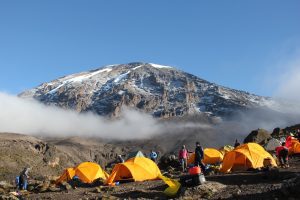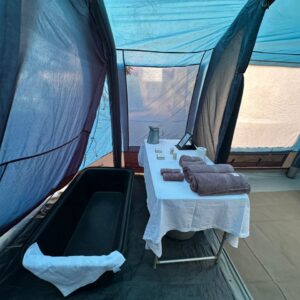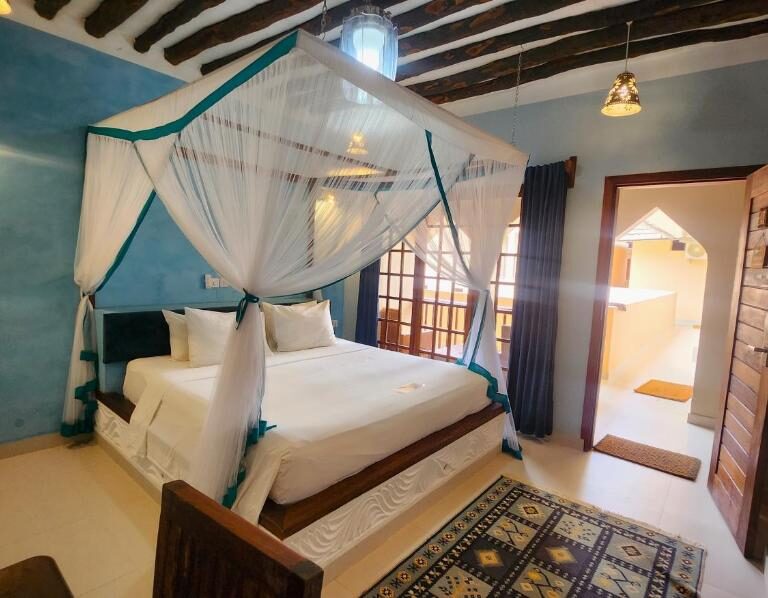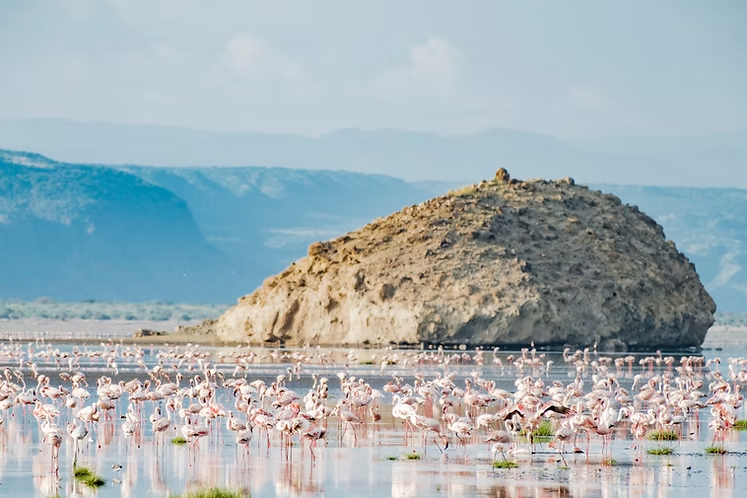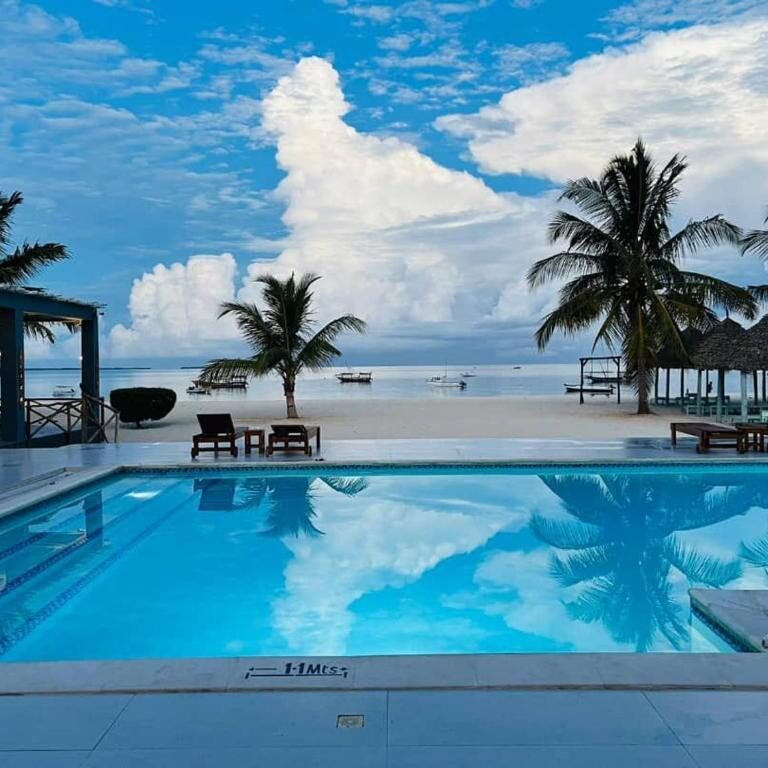Tanzania. The name alone conjures images of vast plains teeming with wildlife, snow-capped peaks piercing the sky, and idyllic island paradises. For many, this East African gem represents the pinnacle of an African adventure. But for the solo traveler, particularly women, a common question arises: Is Tanzania a good destination for a single journey?
The resounding answer is yes. Tanzania is not only an incredible place to travel solo but, in many ways, it’s perfectly set up for it. It offers a unique blend of safety, community, and unforgettable experiences that cater beautifully to the independent spirit. Embarking on a solo trip here allows for deep personal immersion, flexible exploration, and a profound connection with one of the world’s most spectacular natural environments.
Is Tanzania Good for Solo Travel? Here’s Why
Tanzania stands out as an excellent choice for solo travelers for several compelling reasons: Absolutely! Tanzania is remarkably solo-traveler friendly, boasting a welcoming culture and well-established tourism infrastructure. Solo travelers can easily connect with locals and fellow adventurers alike, ensuring that you’ll never feel isolated on your journey.
Private small group Safari Dynamics. The very nature of a safari in Tanzania (especially in the Northern Circuit parks). This provides instant camaraderie, shared experiences, and a built-in safety net, eliminating the isolation sometimes associated with solo travel.
Guided Expeditions. For activities like Kilimanjaro or Meru climbs, a full support team (guides, porters, cooks) is mandatory. As a solo booker, you’ll be integrated into a team, ensuring expert guidance and companionship throughout your challenging trek.
Warm Hospitality. Tanzanians are renowned for their warmth, friendliness, and respect. English is widely spoken in tourist areas, making communication relatively easy.
Established Tourism Infrastructure. Tanzania has a well-developed tourism infrastructure, especially around the Northern Circuit, making logistics smoother than in many other African destinations.
Diverse Offerings. From wildlife to mountains to beaches and culture, there’s a vast array of activities, allowing solo travelers to pick what truly appeals to them.
Essential Tips for Solo Travelers
For a fulfilling solo travel experience, prioritize planning, safety, and flexibility. Research your destination thoroughly, learn some basic phrases of the local language, and choose accommodations that suit your needs, like hostels for social interaction or well-reviewed hotels for security. Stay connected with loved ones, let them know your itinerary, and consider purchasing a local SIM card. Be open to meeting new people, joining local tours, and trying new things. To maximize your solo Tanzanian adventure, keep these foundational tips in mind:
Conduct Thorough Research on Your Destination. Go beyond the tourist brochures. Understand the local culture, social norms (especially regarding dress and interactions), and current events. Knowing what to expect empowers you to navigate confidently.
Prioritize Safety by Choosing Accommodation Wisely. Opt for well-reviewed hotels, guesthouses, or hostels (with female-only dorms if preferred). Look for 24/7 reception, secure entry, and good locks. Location in a well-lit, busy area is key.
Pack Smart and Dress Appropriately. Embrace minimalism. Choose versatile, quick-drying layers in neutral colors for safari. For cultural areas, pack modest clothing that covers shoulders and knees to show respect.
Stay Connected and Share Your Itinerary. Purchase a local SIM card upon arrival. Carry a power bank. Share your detailed itinerary and regular check-in times with a trusted contact back home.
Learn Basic Local Language Phrases. Even a few words of Swahili (“Jambo” – Hello, “Asante sana” – Thank you very much) can open doors, build rapport, and show respect.
Prepare for Health and Wellness. Consult a travel doctor well in advance for vaccinations (Yellow Fever certificate often required) and malaria prophylaxis. Pack a comprehensive personal first aid kit. Stay hydrated and be mindful of food and water safety.
Stay Confident. Project an air of confidence, even if you’re unsure. Walk with purpose, make eye contact, and avoid looking overly lost or vulnerable.
Book with trusted operators. Ensure you book your safaris and tours with reputable companies, prioritizing safety and expertise, recommends Foot Slopes Tours and Safaris.
Navigating Tanzania’s Transportation as a Solo Traveler
Getting around Tanzania requires a strategic approach, especially for solo travelers. Tanzania’s warm, hospitable people are one of the country’s biggest draws. With its stunning natural beauty, from the iconic Serengeti to the tranquil shores of Zanzibar, solo travelers can indulge in activities like wildlife safaris or relaxing on pristine beaches without worry. In cities like Dar es Salaam and Arusha, taxis and ride-hailing services like Uber are available. For longer distances, consider a bus service like Greyhound Tanzania, which provides a reliable and affordable way to travel between towns.
Safari & Trekking Transportation. This is usually handled by your tour operator. You’ll be picked up from the airport, driven in safari vehicles, and transferred between camps/lodges. This is the safest and most convenient option.
Inter-City Flights. For longer distances (e.g., Arusha to Zanzibar), domestic flights are efficient and safe. Book with reputable airlines like Precision Air or Coastal Aviation.
Taxis. In cities like Arusha, Moshi, or Stone Town, use taxis recommended by your hotel or a trusted local. Agree on the fare before starting the journey, as meters are rare. Avoid unmarked cabs.
Ride-Sharing Apps. In major cities, apps like Uber or Bolt are becoming more common and offer a tracked, safer alternative.
Buses/Dalla-dallas. For budget travel, long-distance buses connect major towns, but they can be crowded and schedules may be unreliable. Dalla-dallas (minibuses) are local public transport and can be very crowded; use with caution for shorter distances in daylight only. Avoid night travel on inter-city buses.
The Best Places to Visit in Tanzania as A Solo Traveler
Tanzania offers a diverse range of solo-friendly experiences. Tanzania offers fantastic opportunities for solo travelers, with popular destinations including Zanzibar, Serengeti National Park, Ngorongoro Crater, and Mount Kilimanjaro. The northern safari circuit, encompassing Arusha, Tarangire, and Lake Manyara, is particularly well-suited for solo adventurers. Safety is generally good in tourist areas, but it’s wise to be aware of your surroundings and take necessary precautions.
Serengeti National Park. The epitome of safari. Solo travelers easily join small group safaris, ensuring companionship and shared awe. Ngorongoro Conservation Area. Unforgettable wildlife viewing within the crater. Day trips are standard and perfectly solo-friendly. Tarangire National Park. Known for elephants and baobabs. Excellent for joining group safaris.
Lake Manyara National Park. Diverse landscapes, good for a day trip. Consider adding a guided canoeing safari. Arusha National Park. Close to Arusha, ideal for half or full-day tours. Offers unique walking safaris with armed rangers and canoeing, both excellent for solo travelers joining a small group. Lake Eyasi. For authentic cultural immersion with the Hadzabe tribe. Requires booking with a specialized, ethical tour operator who facilitates respectful solo-friendly visits. Lake Natron. An off-the-beaten-path destination for adventurous solo travelers. Best explored as part of an organized tour due to its remote location.
Mount Kilimanjaro National Park. The ultimate trekking challenge. Solo climbers join guided groups, creating strong bonds and ensuring safety. Mount Meru Hiking. A fantastic 3-4 day climb within Arusha National Park, offering stunning views and a great acclimatization option. Solo hikers join guided groups with armed rangers. Zanzibar Beaches & Stone Town. Perfect for unwinding post-safari. The main tourist areas and popular beaches are safe for solo female travelers. Explore Stone Town’s history by day, and join tours for evening activities. Materuni Waterfall and Kikuletwa Hot Spring. Relaxing day trips from Arusha/Moshi. Easily booked through local operators, often joining other travelers for shared experiences.
Tanzania Travel Itineraries for Solo Travelers
Tanzania is a great destination for solo travelers, offering a mix of wildlife, adventure, and cultural experiences. Popular itineraries often include safaris in the Serengeti, Ngorongoro Crater, and Tarangire National Park, as well as time in Zanzibar for relaxation and cultural exploration. Climbing Mount Kilimanjaro is also a popular option for solo adventurers.
Northern Safari Circuit + Zanzibar (7-14 days). The most popular choice. Start in Arusha/Moshi, join a group safari to Tarangire, Lake Manyara, Ngorongoro, and the Serengeti. Then fly to Zanzibar for relaxation and cultural exploration.
Kilimanjaro Climb + Safari (10-16 days). For the active solo traveler. Begin with a 7-9 day Kilimanjaro climb (joining a group), followed by a 3-5 day safari in the Northern Circuit parks.
Southern Circuit (7-10 days). For a more off-the-beaten-path, wilder safari. Visit Ruaha National Park and Nyerere National Park (Selous). These are generally more expensive but offer higher exclusivity and remote camps, perfect for a solo deep dive into the wilderness. You’ll join small safari groups.
Cultural & Mountain Focus (5-7 days). For those less interested in extensive safaris. Focus on Arusha National Park (walking/canoeing), Mount Meru climb, Materuni Waterfall, Kikuletwa Hot Spring, and a cultural visit to the Hadzabe or Maasai.
Getting The Most Out of Your Solo Tanzanian Trip
To maximize your solo Tanzanian adventure, focus on thorough planning, prioritize safety, embrace flexibility, and connect with local experiences. Research your destinations, book with reputable operators, and be mindful of local customs and safety. Immerse yourself in local culture by taking part in community projects, cooking classes, or dance lessons. These interactions enrich your travel experience and foster meaningful connections.
Embrace the private Group. On safaris and treks, you’ll be with a group. See this as an opportunity to meet like-minded people from around the world. Shared experiences are often more memorable. To maximize your solo Tanzanian adventure, focus on thorough planning, prioritize safety, embrace flexibility, and connect with local experiences. Research your destinations, book with reputable operators, and be mindful of local customs and safety.
Be Flexible. Solo travel allows for spontaneity, but in Africa, it’s good to have a loose plan and be open to changes. Engage with Locals. Be open to friendly conversations. Learn a few Swahili phrases. Smile. This often leads to richer experiences. Journal Your Journey. Solo travel is introspective. Document your thoughts, feelings, and observations. Take Time for Yourself. Balance group activities with moments of quiet solitude, whether it’s enjoying a book in camp or simply watching the sunset alone.
Safety Precautions and Cultural Considerations
Safety precautions and cultural considerations are crucial for a positive and inclusive work environment. Establishing cultural safety policies, encouraging open communication, and providing appropriate training are key elements in fostering a safe and respectful workplace for everyone, regardless of their background. Beyond the general safety tips for solo travelers, specific African context includes:
Respectful Interaction. Understand that public displays of affection are generally frowned upon. Be mindful of personal space. Bargaining. In markets, polite bargaining is expected, but keep it respectful. Scams. Be aware of common tourist scams, especially in busy urban areas. If something feels too good to be true, it probably is. Photography. Always ask for permission before photographing people, especially children. Wildlife Safety. On safari, always listen to your guide. Stay in the vehicle unless explicitly told otherwise by an armed ranger during a walking safari. Health. Carry strong insect repellent. Do not drink tap water.
What to Pack for Tanzania Solo Travel?
For solo travel in Tanzania, pack lightweight, breathable clothing in neutral colors (like khaki, beige, or olive) for safaris to blend in with the environment and avoid attracting insects like tsetse flies. Essential items include sturdy walking shoes, a hat, sunglasses, and sunscreen for sun protection, as well as insect repellent and malaria prophylaxis. Don’t forget a reusable water bottle, a camera, binoculars, and a first-aid kit with personal medications.

